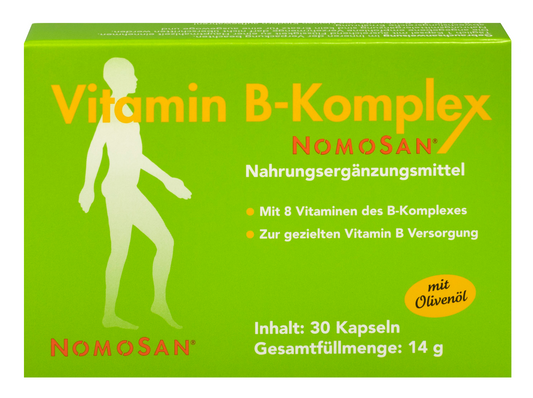The role of vitamin B in the energy metabolism of athletes: Findings from scientific studies
The world of sports is characterized by constant movement, energy and performance. In order to meet these requirements, the body needs an adequate supply of essential nutrients, especially vitamins. In this blog post, we take a closer look at the B vitamins - thiamine, riboflavin, vitamin B-6, folic acid and vitamin B-12 - and their crucial role in the energy production process of athletes. We rely on the scientific study “B vitamins and exercise: does exercise alter requirements?” by Kathleen Woolf and Melinda M Manore from 2006.
Section 1: Introduction to the B vitamins and their importance for energy balance
The B vitamins play a key role in converting food into usable energy. Thiamine, riboflavin and vitamin B-6 are directly involved in the body's energy-producing metabolic pathways. Folic acid and vitamin B-12 are in turn essential for the synthesis of new cells, such as red blood cells, as well as for the repair of damaged cells.
Section 2: Insights from the study: Impact on energy balance
The 2006 study by Woolf and Manore examined the relationship between B vitamins and exercise. In particular, it suggests that active individuals with poor or marginal dietary quality in terms of B vitamins may have a reduced ability to undertake intense exercise. The study highlights that riboflavin and vitamin B-6 may experience increased demands from physical activity, while data for folic acid and vitamin B-12 are limited.
Section 3: Functions of B vitamins in the context of sport
-
Thiamine (Vitamin B1): Thiamine is essential for converting carbohydrates into energy. During intense training sessions, the need for carbohydrates increases, which could also increase the need for thiamine.
-
Riboflavin (Vitamin B2): Riboflavin is an important cofactor in energy metabolism processes. During intense physical activity, riboflavin requirements could increase due to increased energy expenditure.
-
Vitamin B-6: This vitamin is involved in more than 100 enzymatic reactions that are crucial for protein metabolism and energy production. Intense exercise could increase demand as protein is broken down and rebuilt during exercise.
-
Folic acid (vitamin B9) and vitamin B-12: These two vitamins are essential for cell division and the formation of new cells. Active athletes who regularly experience cell damage may have an increased need to support repair and regeneration.
Section 4: Implications for Athletes and Recommendations
The findings from the study suggest that athletes should pay particular attention to their B vitamin intake in order to meet the increased requirements. Athletes with dietary restrictions, whether due to energy restrictions or elimination of certain food groups, may benefit from taking multivitamin and mineral supplements.
Section 5: Conclusion
Overall, the scientific study by Woolf and Manore highlights the importance of B vitamins in the energy production process of athletes. The different B vitamins are involved in different metabolic pathways and may have increased requirements during intensive physical activity. A balanced diet rich in B vitamins can help optimize the performance and recovery of athletes.
Section 6: Sources
This blog post is based on the following scientific study: Kathleen Woolf and Melinda M Manore. "B vitamins and exercise: does exercise age requirements?" Int J Sport Nutr Exerc Metab . 2006 Oct;16(5):453-84. doi: 10.1123/ijsnem.16.5.453.

